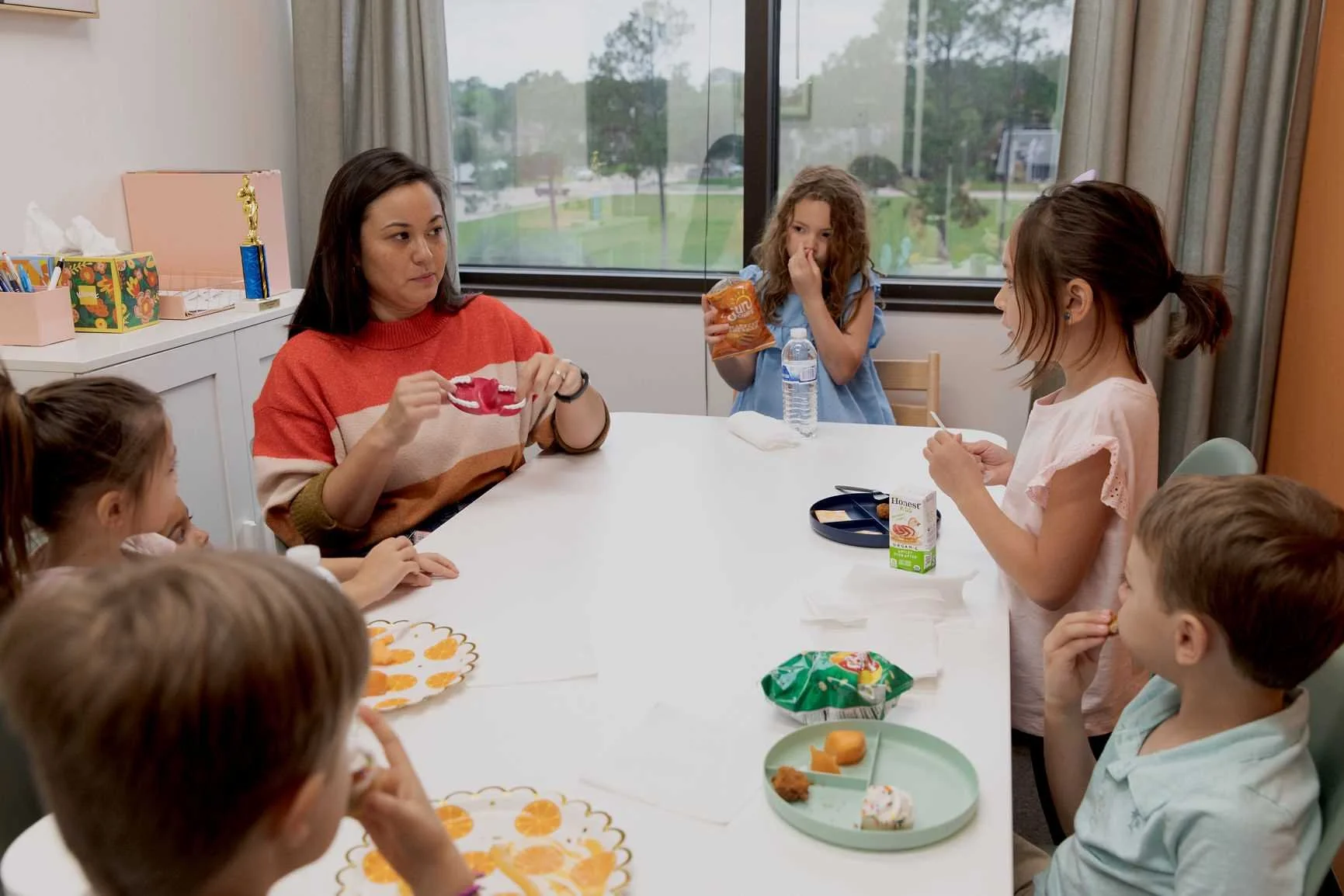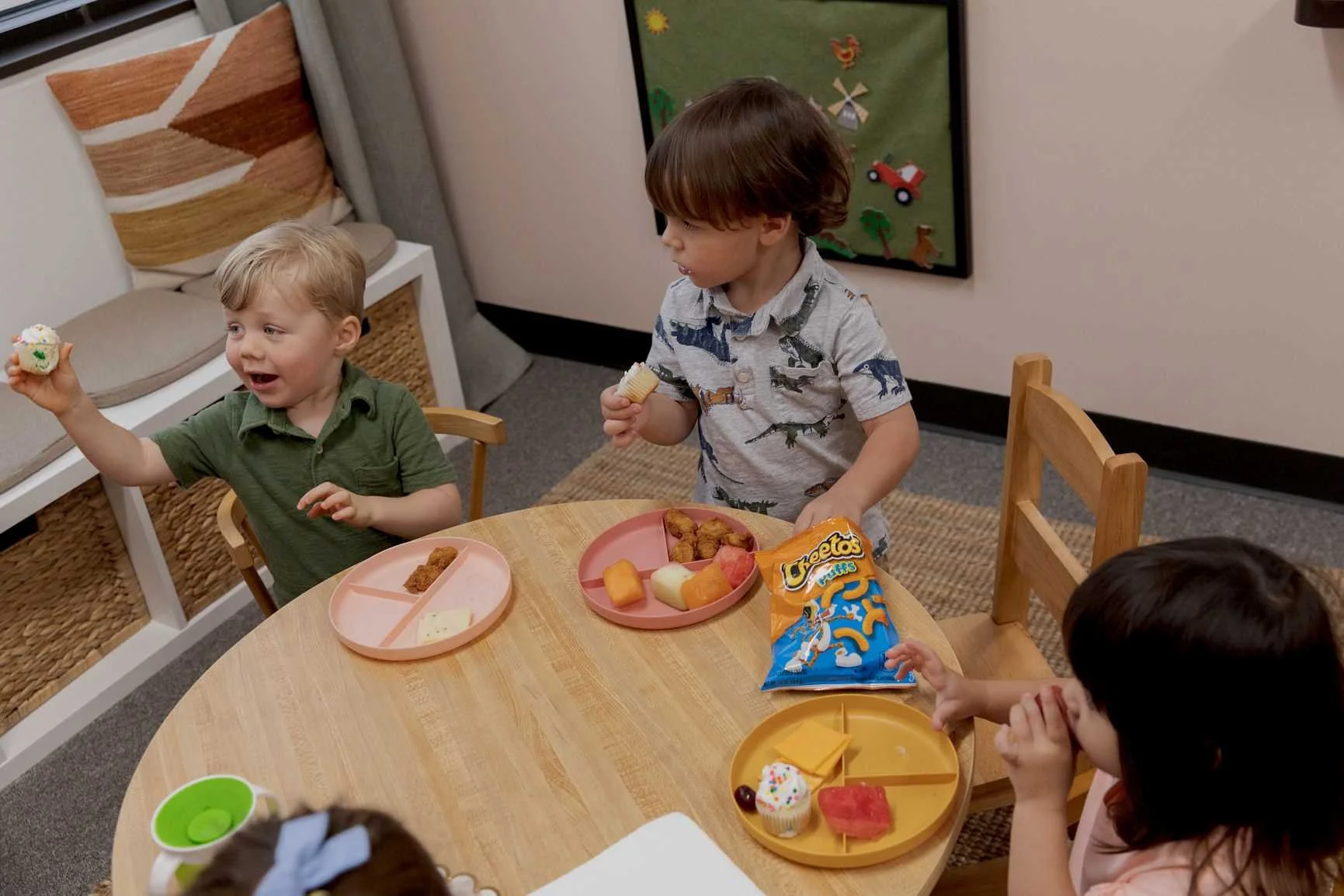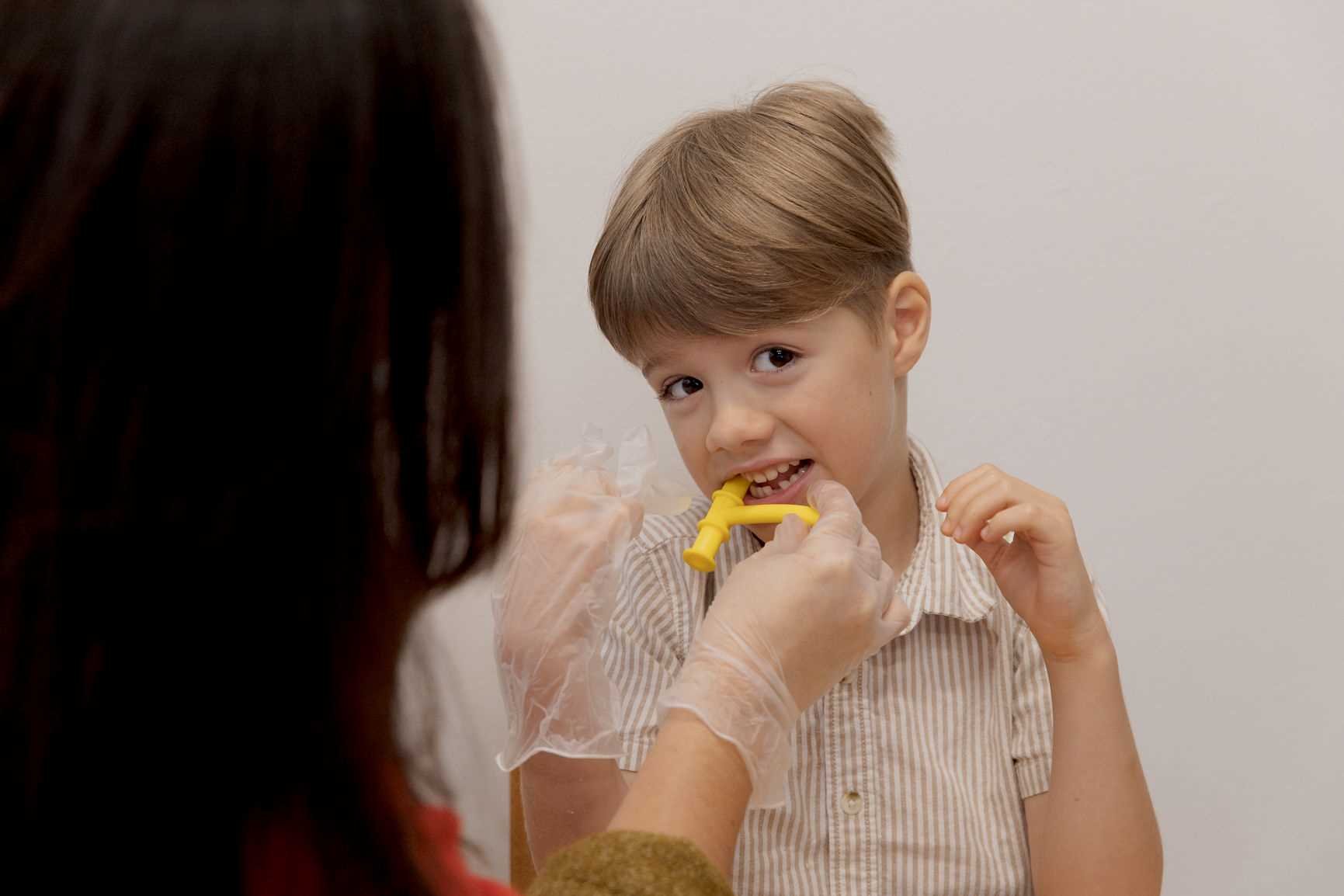Feeding Therapy
Infant Feeding Therapy & Lactation Services (0-12 months)
Support Before and After Birth
Even before your baby arrives, we can help you prepare for a confident feeding journey. We offer perinatal education about what to expect in the first days and weeks, how to recognize your baby’s early feeding cues, and how to set up for success with breastfeeding, pumping, or bottle feeding.
Personalized Feeding Support for Every Family
Every family’s feeding story is unique. Whether you plan to breastfeed, bottle feed, or do a combination, we tailor support to your baby’s needs and your lifestyle.
We take a compassionate, evidence-based approach to help you meet your feeding goals—without judgment or pressure.
What we can help with:
Newborn feeding volume
Supply
Pumping and formula
Difficulty latching or staying latched
Positioning
Painful feeding or nipple soreness
Poor weight gain or long feeding sessions
Transitioning between breast and bottle
Tongue or lip tie evaluation
Reflux, gassiness, or clicking sounds
Transition to Solids (6 months +)
Introducing solids to your infant can feel exciting, but also intimidating. You don’t have to figure it out alone. We’re here to guide you through every step of the process and help build both your and your baby’s confidence with food.
Feeding isn’t just about nutrition, it’s about learning. We help ensure your baby develops the foundational oral-motor and sensory skills needed for safe, successful eating right from the start.
For some children, early feeding difficulties evolve into selective or avoidant eating. We help children and families reduce mealtime stress, expand food variety, and build a healthy relationship with food.
We Can Help With:
Understanding signs of readiness to start solids
Choosing between purees, baby-led weaning, or a hybrid approach
Teaching babies how to chew, move food in the mouth, and clear the spoon
Positioning your baby for safe and effective feeding
Introducing open cups and straws
Progressing textures and avoiding picky eating
Safely introducing common allergens
Recognizing the difference between gagging and choking
Building enjoyable mealtime routines
Including cultural and family foods early on
Picky Eating and Feeding Challenges (toddlerhood - adolescence)
Eats less than 20 foods
A separate meal is made
Whole categories of food are missing from the inventory
Particular textures are avoided
Grazing
Mealtime is a headache or anxiety producing
Gagging or vomiting during meals
Difficulty manipulating or breaking down certain foods
Mouthing/munching on hands/toys
Is not gaining weight appropriately
What is a pediatric feeding disorder?
A feeding disorder occurs when a child has difficulty taking in food or drink, moving it in the mouth, or chewing it effectively.
Feeding disorders can also occur alongside swallowing difficulties, known as dysphagia.
Our team of speech-language pathologists helps families identify what’s typical and what may signal a problem—from newborn feeding and latching, to the transition to solids, and on through picky eating or oral motor difficulties in older children.
Types of Feeding Difficulties
Challenges related to the strength, coordination, and movement of the mouth, tongue, and jaw that affect chewing and swallowing.
Oral Motor Feeding Issues
Behavioral or Learned Feeding Difficulties
Patterns developed through stress, negative experiences, or learned avoidance around food.
Conditions like tongue-tie, reflux, or coordination issues that make feeding physically difficult.
Structural or Medical Feeding Issues
Children who are hypersensitive or hyposensitive to food textures, smells, or tastes.
Sensory Based Feeding Difficulties
Evaluation & Treatment
Evaluation and treatment with a therapist at Atwell Therapeutics is designed to uncover the why behind feeding challenges and guide families toward confident, stress-free mealtimes. Following the evaluation, your therapist develops an individualized treatment plan focused on your child’s unique needs and developmental level. Treatment may include oral motor strengthening and coordination activities, sensory-based feeding therapy, gradual food exploration, and family coaching to support carryover at home. We often collaborate closely with other professionals—such as ENTs, dentists, allergists, and occupational therapists—to ensure we identify and address the root cause of any feeding or swallowing issue. Our goal is to help children build strong, coordinated oral motor skills, expand comfort and confidence with food, and create positive mealtime experiences that support growth and development.
Schedule your complimentary consultation.
We want your child to be healthy, functional, and happy. If your child wakes up not rested, appears to be struggling with attention, self regulation, emotional regulation, communication, or you’ve recently received a diagnosis, or your pediatrician, teacher, or other professional is recommending speech therapy, book a call today to learn more about how we can help.
Speech Therapy Services










